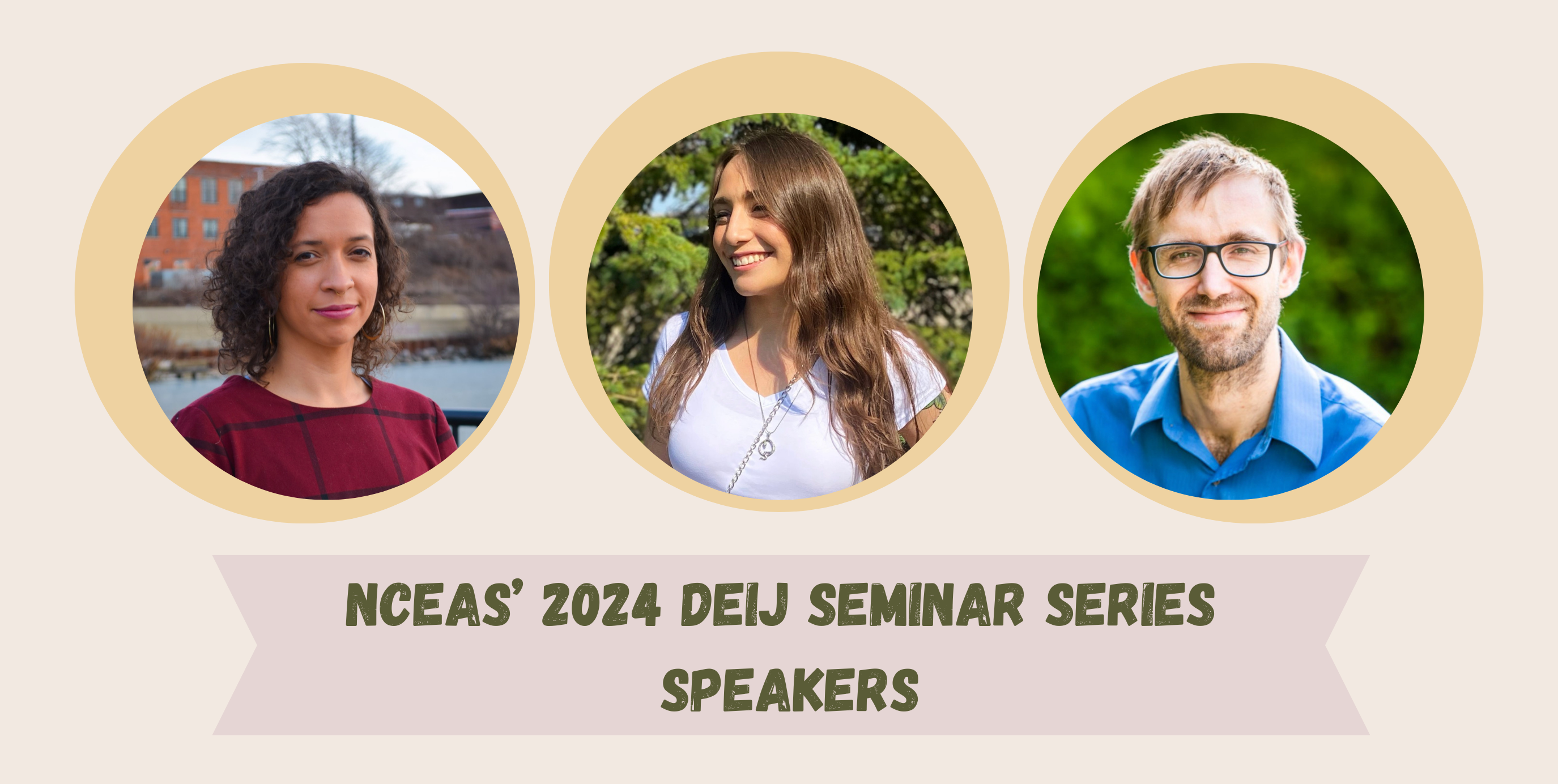Expressing care and working towards justice in environmental data science

Here at NCEAS we continue to build a strong tradition for DEIJ learning through our annual seminar series. This year marks the fourth iteration! We were thrilled to once again host three environmental data science professionals to share their takes on fostering a more diverse and equitable environmental data science field.
NCEAS plays a central role in environmental data science, synthesis science, and collaborative research. The DEIJ Seminar Series arose from conversations within NCEAS about how we can foster diversity and inclusion within our scientific community, while also designing research questions and approaches to promote environmental justice and equity across our broader community.
Cristina Mancilla, NCEAS community engagement officer and DEIJ committee co-chair, sees a unique opportunity. “As an institution with this much visibility, we have a responsibility to use the resources and the network that we have to amplify both these really pressing issues and also the voices that we typically don't hear within the environmental science, management, and data science fields,” she said.
Efforts to improve environmental justice require interdisciplinary work, said Mancilla. “We're set up really well to do that,” she said.
“The work that you do, the things that you say, and the decisions that you make with how you are processing and thinking about data has power,” she said.
This year, we heard from Dr. Lourdes Vera (University at Buffalo), Keara Lightning (University of Alberta), and Dr. Eric Nost (University of Guelph).
The Series
Dr. Lourdes Vera discussed the concept of “living data” - an idea that recognizes data as a representation of human identities or embodied experiences. “There’s not just one way of seeing and mapping the world,” she said. “Research that incorporates those different kinds of knowledges and values them is taking a step towards repairing the world and maintaining good social relations.”
Watch Dr. Lourdes Vera’s talk on “Infrastructuring Environmental Data with Care”.
Keara Lightning spoke about how Western science and policy, and especially environmental management, dictate narratives about Indigenous knowledge and management of the land. “The way we classify an environment is not a purely scientific understanding,” she said, arguing that social or cultural perspectives also play a significant role. “Where non-Indigenous Canada sees a pristine landscape, we see ghosts of the nations who lived there, the overgrown aftermath of genocide.”
Watch Keara Lightnings talk on “The Ecology of Possession”.
Dr. Eric Nost sees opportunities to connect conservation data justice and environmental data justice. Yet he argues that these opportunities require reflecting on the efficacy and impact of big data collection, control, and use. When does more data result in greater care and justice, he asks. Nost points to the “treadmill effect” of big data collection: the more we learn, more gaps become apparent. He challenges us to consider whether more data is the key to much-needed action, policy shifts, or other desired outcomes.
Watch Dr. Eric Nost’s talk on “Bridging Environmental and Conservation Data Justice”.
The DEIJ Seminar Series committee is seeking feedback from those who attended the 2024 DEIJ Seminar Series and welcomes speaker recommendations for next year. You can submit your feedback and ideas here.
Please direct questions to the NCEAS DEIJ Committee at deij@nceas.ucsb.edu
